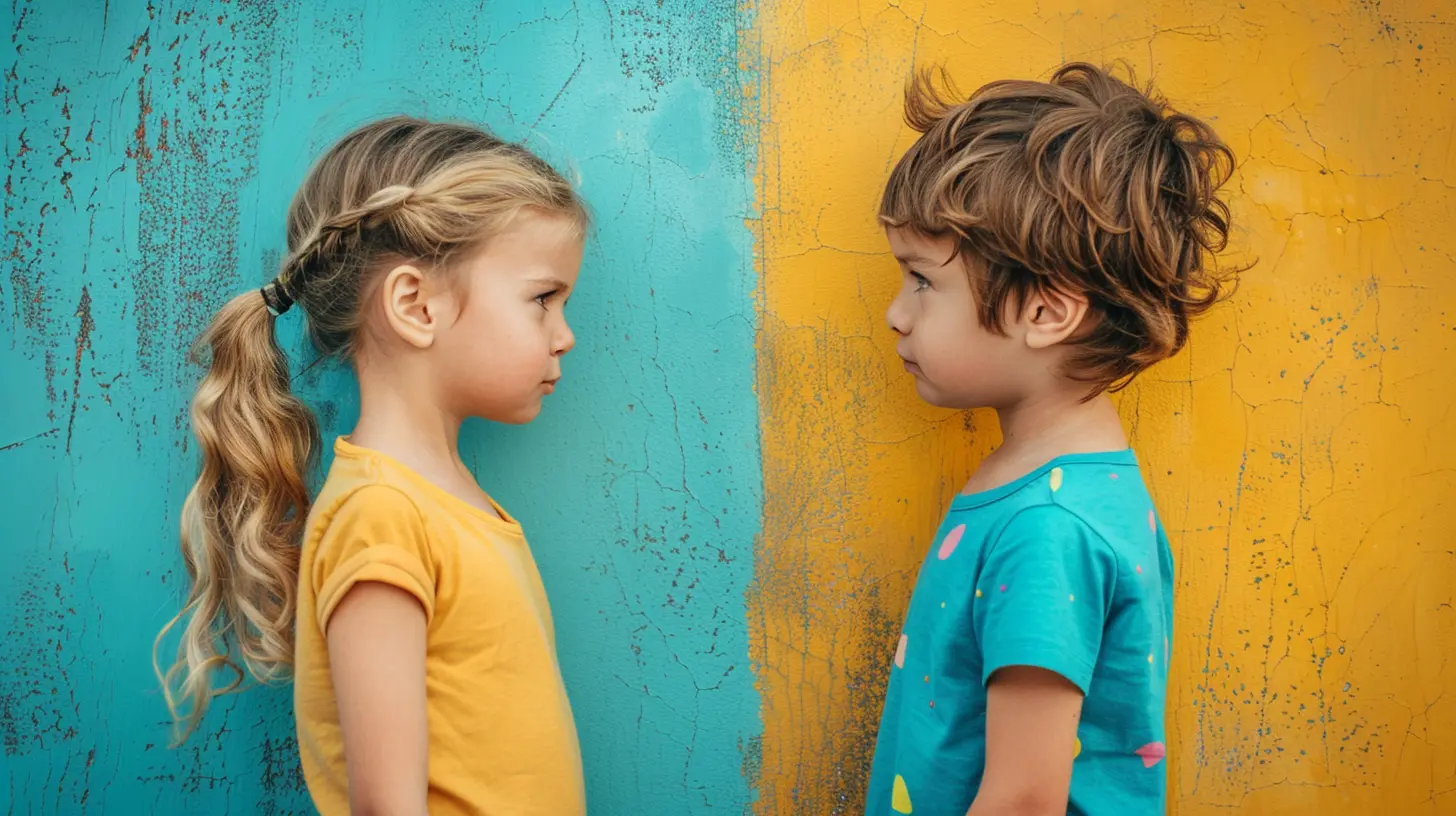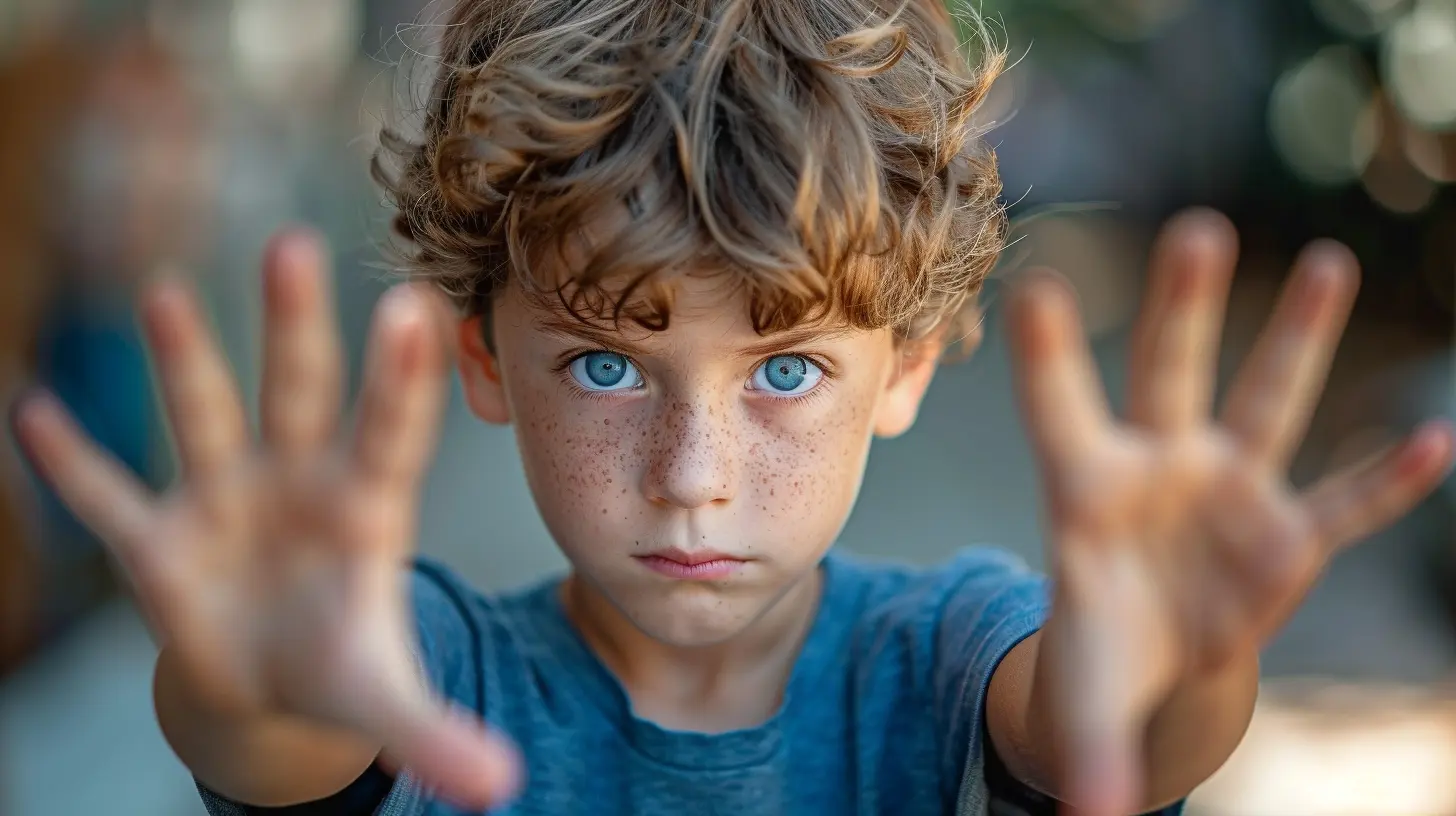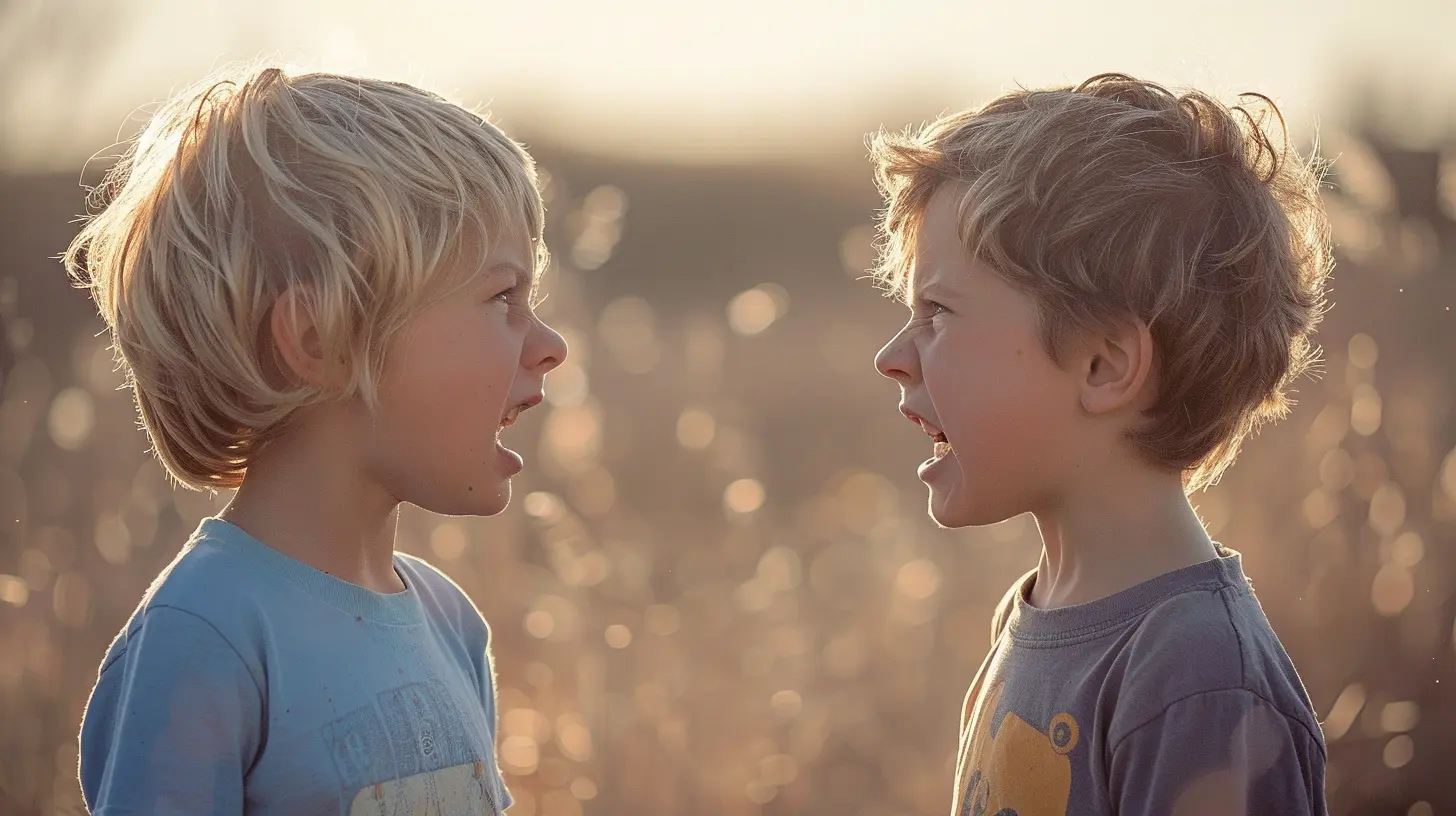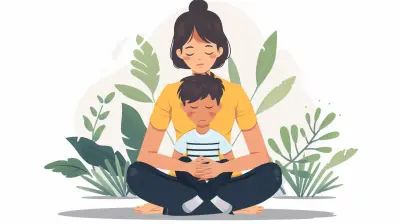Teaching Accountability: How to Help Kids Own Their Actions
4 September 2025
We all want our kids to grow up into responsible, confident, and independent adults. But let’s be real—raising kids who take ownership of their actions (without throwing a tantrum or blaming everyone else) is not always easy. That’s why teaching accountability is more than just a parenting buzzword—it’s a life skill. And like any skill, it takes time, patience, and consistency to develop.
So if you're tired of hearing, “It’s not my fault!” or “He made me do it!” every time something goes wrong, you’re in the right spot. Let’s talk about practical ways to help our kids grow into people who step up, not step back, when things get tough.
What Is Accountability, Really?
Before we jump in, let’s clear the air—what exactly is accountability?Simply put, accountability means taking responsibility for your actions, decisions, and consequences—good or bad. It’s the willingness to say, “I did it,” whether you aced that science project or broke your sister’s toy.
For kids, this can be a bit abstract. They’re still learning how the world works, not to mention how their own emotions work. That’s why our job is to guide them, not just punish mistakes.
Why Accountability Matters
You might be wondering, “Why can’t I just fix the problem and move on?” Totally understandable. But when kids learn accountability:- They become more self-aware.
- They build better relationships.
- They learn from mistakes.
- They grow more confident and humble.
- They develop resilience.
Bottom line? Accountability = life readiness.
Start Early—But It's Never Too Late
Teaching accountability doesn't have an age limit, but the earlier you start, the better it sticks. Preschoolers can learn to clean up toys, just like teens can learn to admit when they miss curfew.Keep in mind though, it’s never too late to start. Even if your tween or teen has a habit of dodging blame, change is possible. Small steps lead to big shifts.
Be a Role Model—Show, Don’t Just Tell
Kids are little sponges—they notice everything. If we want our children to own their actions, we have to be willing to do the same.Did you mess up a dinner recipe? Say it: “Oops, I totally forgot the salt. That one's on me.”
Ran late to pick up from school? Be honest: “I'm sorry I was late. I lost track of time, and I’ll do better tomorrow.”
Modeling accountability in your everyday life teaches them that taking ownership isn’t shameful—it’s brave and respectful.
Stop Rescuing—Let Natural Consequences Happen
Let’s talk about a tough love moment. As parents, our instinct is to protect our kids from pain. But shielding them from consequences can actually backfire.If your child forgets their homework at home, don’t rush to school to drop it off. Let them feel the discomfort of the mistake. That experience teaches more than a week’s worth of lectures.
Natural consequences = real learning.
They’ll think twice next time.
Set Clear Expectations and Boundaries
Kids thrive on structure. They need to know what’s expected of them in order to meet those expectations.Be clear, not vague. Instead of saying, “Behave nicely,” say, “Please speak respectfully to everyone at the dinner table.”
When the rules are clear, holding them accountable becomes easier—and more fair.
Bonus tip: Include them in rule-making when you can. Giving them a voice boosts buy-in and teaches compromise.
Make Accountability Age-Appropriate
Accountability looks different at every age. A three-year-old won't own up the same way a thirteen-year-old will—and that’s perfectly fine.Here’s a quick breakdown:
- Toddlers: Basic tasks like putting toys away.
- Younger Kids: Chores, following bedtime routines.
- Preteens: Schoolwork, peer relationships.
- Teens: Time management, commitments, social behavior.
Adjust your expectations based on where they are developmentally, and avoid comparing siblings or children to each other. Everyone’s growth curve is unique.
Use Mistakes as Teaching Moments
Let’s shift how we view mistakes. Instead of seeing them as failures, see them as mini classrooms.If your child forgets an assignment or fights with a sibling, resist the urge to scold immediately. Sit down, talk it through, and ask:
- What happened?
- How did you feel?
- What could you do differently next time?
This kind of reflection builds self-awareness and naturally leads to accountability. You're not swooping in to fix things—you’re guiding from the side.
Praise Effort, Not Just Results
Kids need encouragement, but be mindful of what you're praising. Instead of just saying “Good job” when they succeed, try:- “I really liked how you cleaned up without being asked.”
- “That took a lot of courage to admit. I'm proud of you for being honest.”
Praising the act of taking responsibility (even when the outcome isn’t perfect) reinforces the behavior you want to see more of.
Consistency Is Key
Teaching accountability isn’t a one-and-done deal. It’s a marathon, not a sprint.Set consistent rules and consequences, then stick with them. If your child knows that every time they forget to feed the dog they lose video game time, they’ll start connecting the dots.
And here’s the trick—stay calm and consistent, not reactive. The more predictable you are, the more secure and responsible they become.
Encourage Problem-Solving
Don’t just tell your kids what they did wrong—help them figure out how to make it right.Let’s say your child accidentally broke a neighbor’s lawn ornament. Instead of just apologizing for them, encourage them to:
1. Admit the mistake.
2. Offer a personal apology.
3. Ask how they can fix it (maybe offer to earn money to replace it?).
Problem-solving teaches that accountability isn’t just about owning up—it’s also about making amends.
Use Stories and Media to Spark Conversations
Sometimes it’s easier (and more fun) to learn through stories. Books, movies, and shows are full of characters who make mistakes and own—or avoid—responsibility.After watching a movie or reading a book together, ask:
- Do you think they handled that situation well?
- What would you do differently?
- How could they have taken responsibility?
It’s less confrontational and more engaging than, “Let’s talk about your behavior last Tuesday...”
Encourage Journaling or Reflection Time
Reflection is a powerful tool, especially for older kids and teens. Encourage them to keep a journal where they can write about what they’re feeling, what went wrong, and what they could’ve done differently.It’s not about guilt—it’s about growth.
Journaling helps them process emotions privately and become more self-aware over time.
Don’t Shame—Empower
Accountability should never come from a place of shame. If kids feel attacked, they’ll shut down or double down on blame-shifting.Instead of saying, “I can’t believe you did that,” try, “This was a mistake, but mistakes help us learn. What can you do to make it right?”
Shifting from punishment to problem-solving fuels emotional growth and keeps the lines of communication open.
Reinforce Accountability Over Blame
There’s a difference between accountability and blame. Blame sounds like punishment. Accountability sounds like growth.If a sibling fight happens, avoid picking sides. Instead, talk to both kids about their part in what happened. Accountability is about reflecting on your own piece of the puzzle, not pointing fingers.
This teaches emotional intelligence—and we could all use more of that, right?
Patience, Patience, Patience
Let’s be super honest—it won’t always click right away. Your child won’t suddenly wake up one day and say, “I now take full responsibility for everything!”Nope. There will be resistance, eye rolls, maybe even tears. And that’s okay.
What matters is that you keep showing up, keep modeling, and keep reinforcing the message. Over time, those seeds you’ve planted will grow.
Final Thoughts
Raising accountable kids isn’t about being perfect or raising perfect humans. It’s about helping your child become someone who can admit mistakes, learn from them, and bounce back stronger.It starts with you. By staying consistent, modeling responsibility, and creating a space where mistakes are safe to talk about, you’re giving your child a lifelong gift.
So next time your kid spills milk or forgets their math homework? Take a deep breath, lean into the moment, and remember—it’s not just a mess. It’s an opportunity for growth.
And isn’t that what parenting is all about?
all images in this post were generated using AI tools
Category:
Discipline TechniquesAuthor:

Austin Wilcox
Discussion
rate this article
1 comments
Xavi McTier
Great insights on fostering accountability in kids! Encouraging open communication, setting clear expectations, and modeling accountability ourselves are essential steps. It’s also helpful to celebrate small successes to reinforce positive behavior. Creating a safe space for learning from mistakes will empower children to grow and take responsibility.
September 25, 2025 at 2:58 PM

Austin Wilcox
Thank you! I'm glad you found the insights helpful. Celebrating successes and creating a safe space for learning are indeed vital in fostering accountability in children.


